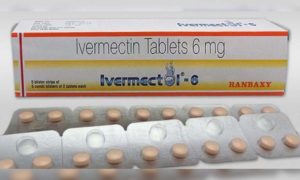Exercising but still not losing fat? Check your Vitamin C
If you’re having trouble with a pesky layer of fat, despite exercising, know that it might not be the calories you’re consuming but rather the vitamins you’re not.


I have long been a runner and for the most part maintained a healthy diet. But during the last few years I have been consternated by my inability to lose fat. Even though I ran three or four miles a day, I maintained a layer of fluff and hovered around ten to fifteen pounds above my optimal body weight.
My thinking was that weight was the result of the equation calories minus exercise. So, if I consumed less and exercised more I would slim down. That didn’t pan out. I tried everything to cut the fat, including fasting, eating very low-calorie diets, low carbs, and upping oatmeal consumption to reduce fat absorption. It all proved moderately successful, but nothing seemed to get rid of this pesky layer of fat.

My friends said that turning 40 means that your body just doesn’t work as well. Sure enough, it was when I turned 40 that this layer of fluff had appeared. But I wasn’t ready to just throw in the towel. At 39, I was peaking—as trim as I have ever been, and running my best splits ever. I could eat anything I wanted and still not put on fat. No, I was determined that something was wrong, and I was going to figure out what.
Fructopocalypse
Interestingly, it was around when I turned 40 that something happened to really discombobulate my bodily metabolism. I started eating lots and lots of fruit. Way too much. I figured it was a good source of healthy energy, so I gorged on it in hopes it would help my performance. Little did I know that the energy in fruit is largely made up of fructose, and that fructose can only be metabolized by the liver. This is a problem.
Other sugars (glucose and galactose) can be metabolized in any cell in the body and so are much more expedient. The fact is that I was eating way too much fructose for my poor liver to metabolize. And so it simply started turning it into fat. I probably put on about 20 pounds at peak and felt awful. Worst of all my athletic performance suffered.
Ultimately, I found that I had overtaxed my liver to the point where it doesn’t seem to want to metabolize fructose at all any more, and, any time I eat fruit (or anything high in fructose), I see instant fat build up.
Discovering this was quite a shock as I love fruit and can hardly do without. But, as I saw it, fructose became off limits for me at least until I could get my liver back in shape. So I have been going fruitless as much as I could for the last couple of years. And this is where my diet went really haywire.
Vitamin C Deficiency
So, here I am, I have cut the fruit and am thinking I should be able to get rid of this layer of fat that had accumulated, but something was wrong—it wasn’t working. I tried intermittent fasting and going all protein. I tried keto a while and found that to be the worst. I would still gain fat whenever I ate fructose, but it didn’t come off like I assumed it would.
It was then that I heard that one key to losing weight is vitamin C. As I understand it, vitamin C assists in the process of turning fat lipids into energy:
Vitamin C is a cofactor in the biosynthesis of carnitine, a molecule required for the oxidation of fatty acids. A reduction in the ability to oxidize fat may contribute to the reported inverse relationship between vitamin C status and adiposity.
Without vitamin C, this process is stalled. Since vitamin C is water soluble, your body can’t retain it and so you need a healthy dose of it every day for this process to take place everyday. Of course, in giving up fruit, I had pretty much given up my vitamin C consumption.
Before my fructopocalypse I had consumed a cup of orange juice every morning as a part of my breakfast. But, when I realized my fructose intolerance, that OJ was the first thing I dropped. With it, apparently, I dropped my ability to turn fat into energy.
I was in a fix. I needed vitamin C to lose weight but I couldn’t consume it because it mostly came in fruit, which was kryptonite for me.
Ah, but there was a solution!
Fruit isn’t the only place you can get vitamin C. For instance, it turns out a head of broccoli has 100% RDA of vitamin C in addition to just about everything else you need. So, I started eating a bag of raw broccoli every day first thing in the morning. I know, for many raw broccoli is like flavor kryptonite. But it’s so worth it. I got the vitamin C I needed, and, like magic, I started feeling more energy during my runs, and I started losing the fat again.
Now I could pretty much eat anything the rest of the day (believe me, I’ve tried) and still wake up with a trim physique. What’s most fascinating is that I can even eat fruit again since my body knows what to do with the fat it creates with the fructose. So a cup of OJ in the morning it is.
Appropriating Your Diet

The main principle of The Paleo Family Diet is to appropriate your diet, which means that it’s not just about the calories in and calories out equation. It matters when you eat what you eat and when you exercise and rest. My vitamin C story underscores the entire principle. The key with vitamin C is that you need a dose every day for your body to work properly. If you consume the vitamin C after you exercise, it can help, but it won’t be as effective as if you consume it before exercising so that your body can make use of the fat and turn it into energy.
Many will suggest a supplement as a solution to this conundrum. I haven’t tried it, thinking natural is best. It’s not clear that abstracted vitamin C is what you need in the first place (it might not even be a vitamin at all), and, if you can get it in a food source, it’s going to be better in every way possible because of the other nutrients and fiber. Your taste buds aren’t going to send you love letters eating raw broccoli first thing in the morning, but your waistline will. That’s my experience anyway.
So, if you’re having trouble with a pesky layer of fat, despite exercising, know that it might not be the calories you’re consuming but rather the vitamins you’re not. I just hope it doesn’t take you as much trial and error to figure out as it took me.




